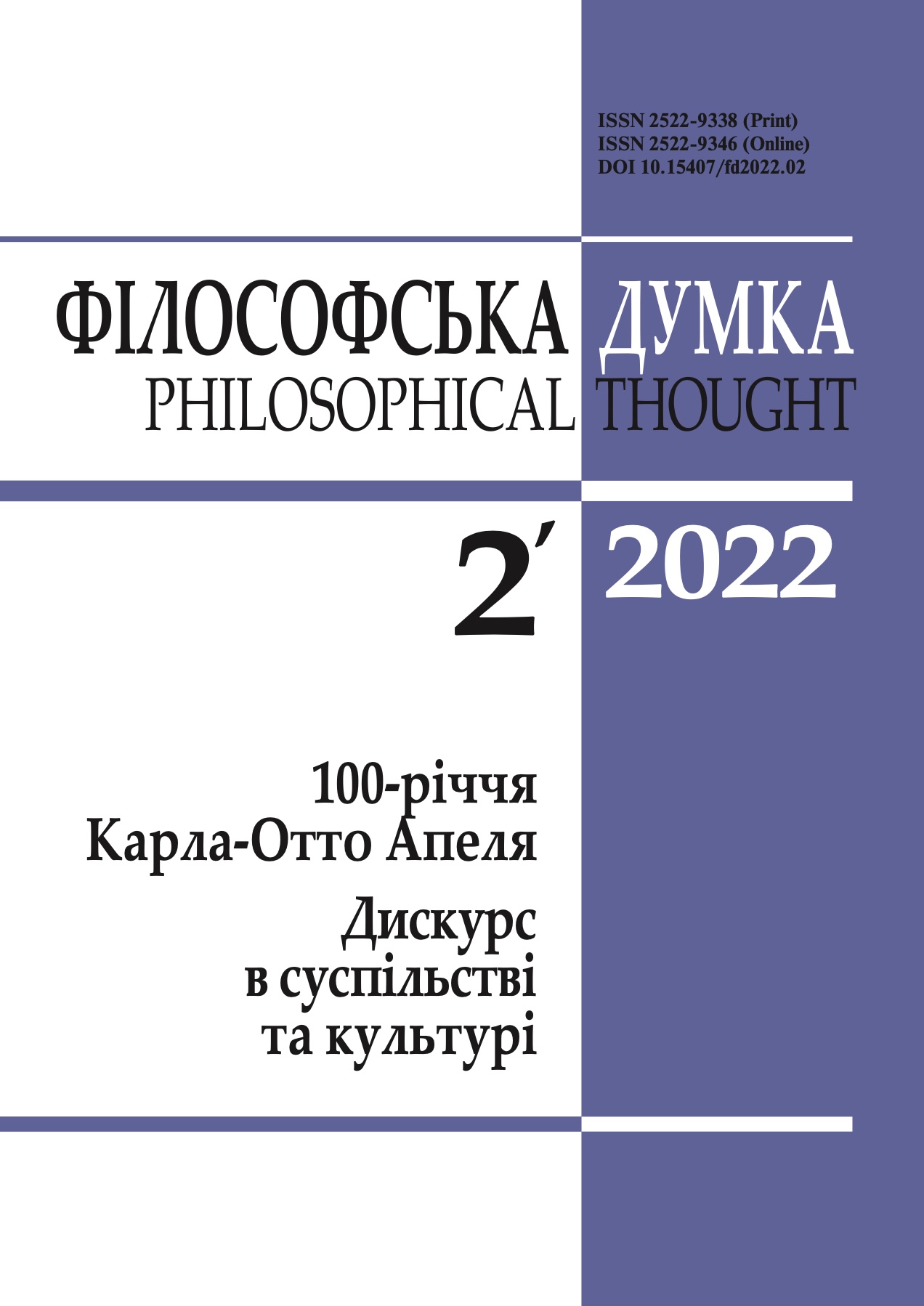DISCURSIVE DIMENSION OF INSTITUTIONS
DISCOURSE IN SOCIETY AND IN CULTURE
DOI:
https://doi.org/10.15407/fd2022.02.083Keywords:
social institutions, discourse, society, norms, normativity, structure of life activityAbstract
The article considers the leading and indisputable role of discursive practices in the existence of social institutions, especially in democratic governance. The necessity of searching for heuristi- cally effective approaches in the analysis of social reality in general, and especially modern soci- ality, is substantiated. In this context, the theoretical modernization of the institutional approach in the analysis of social phenomena by involving the concept of discourse in the structure of this approach is proposed. Emphasis is placed on the dual meaning of social institutions — as ways of organizing the life of society and as instances (mediums) of normative, through which the order of social life is constituted, reproduced, and changed. This solves the “rule-organization” dilem- ma in neo-institutionalism. It is transferred to the mode of two inseparable and complementary functions of the institute — normative and regulative. The analysis of those semantic, organiza- tional, and procedural loadings which carry out discursive practices inactivity of institutes of society is given. In particular, emphasis is placed on the complex structure of normativity em- bodied by the public institution. It should at least highlight the explicit normativity of the system of rules and regulations on the one hand, and the order of discourse created and maintained by this institution, on the other. Discourse corresponds to the normativity in its usability — as a real process of normalization of life. Normativity exists only by generating certain practices of speech, communication, and argumentation (conclusion). This becomes the basis for distin- guishing the concept of an institution as a discursive mode of existence of a social institution on the one hand, and as a way of organizing discourse in society (order of discourse) — on the other. Among the main social effects of institutions are the generation of trust as the basis of social relations and the longevity of cultural experience. Emphasis is placed on the complexity of the existence and activities of institutions: each institution is involved in the general discursive-com- municative field of society, and in turn, influences it.
References
Acemoglu, D., Robinson, J. (2016). Why Nations Fail: The Origins of Power, Prosperity, and Poverty. [In Ukrainian]. Kyiv: Nash Format.
Merton, R. (2006). Social Theory and Social Structure. [In Russian]. Moscow: AST, Hranitel.
Miller, S. (2019). Social Institutions. In: Stanford Encyclopedia of Philosophy. Retrieved from:: https://plato.stanford.edu/entries/social-institutions/
Nort, D. (1997). Institutions, Institutional Change and Economic Performance. [In Russian]. Mos- cow: Fond ekonomicheskoj knigi «Nachala».
Rawls, J. (2001). A Theory of Justice. [In Ukrainian]. Kyiv: Osnovy.
Rosanvallón, P. (2009). Democratic Legitimacy: Impartiality, Reflexivity, Proximity. [In Ukrainian]. Kyiv: KM Akademia.
Sztompka, P. (1999). Trust: a sociological theory. Cambridge: Cambridge University Press. Turner, J. (1997). The Institutional Order: Economy, Kinship, Religion, Polity, Law, and Education in Evolutionary and Comparative Perspective. New York: Longman.
Veblen, T. (1994). The theory of the leisure class. New York: Penguin books.
Vico, G. (2018). New science: principles of the new science concerning the common nature of nations. [In Russian]. Moscow: RIPOL klassik.
Downloads
-
PDF (Українська)
Downloads: 112
Published
How to Cite
Issue
Section
License
Authors who publish with this journal agree to the following terms:
- Authors retain copyright and grant the journal right of first publication.
- Authors are able to enter into separate, additional contractual arrangements for the non-exclusive distribution of the journal's published version of the work (e.g., post it to an institutional repository or publish it in a book), with an acknowledgement of its initial publication in this journal.
- Authors are permitted and encouraged to post their work online (e.g., in institutional repositories or on their website) prior to and during the submission process, as it can lead to productive exchanges, as well as earlier and greater citation of published work (See The Effect of Open Access).


